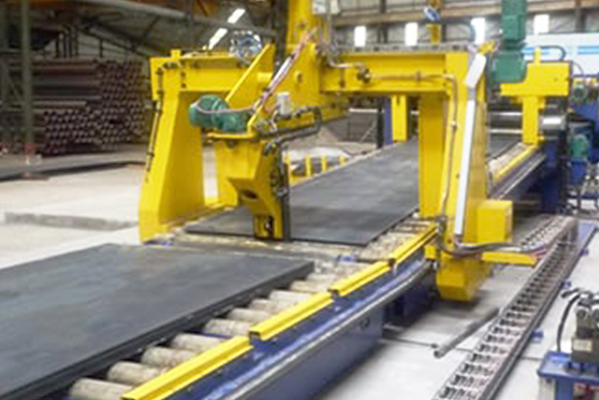Navigation Menu
Contact Us
- Email:
- info@wxavatar.com
- Address:
- Yurong Village, Yuqi Street, Huishan District, Wuxi, China.
Release Date:Jul 05, 2025 Visit:70 Source:Roll Forming Machine Factory
Artificial Intelligence (AI) has become a transformative force across various industries, and packaging equipment is no exception. By integrating AI into packaging machinery, manufacturers can enhance efficiency, improve accuracy, and reduce operational costs. This article explores the key roles AI plays in modern packaging equipment and how it is shaping the future of packaging automation.

1. Enhanced Quality Control
AI-powered vision systems are widely used in packaging equipment to detect defects, misalignments, and inconsistencies in real time. Machine learning algorithms analyze images of packaged products at high speeds, ensuring only items that meet quality standards proceed down the production line. This reduces waste and minimizes the risk of faulty products reaching consumers.
2. Predictive Maintenance
Unexpected equipment downtime can disrupt production schedules and increase costs. AI-enabled predictive maintenance systems monitor machine performance by analyzing data from sensors, identifying patterns that indicate potential failures before they occur. This allows manufacturers to schedule maintenance proactively, extending equipment lifespan and improving overall productivity.
3. Optimization of Packaging Processes
AI algorithms can analyze vast amounts of production data to optimize packaging line performance. By adjusting machine settings dynamically, AI ensures that packaging equipment operates at peak efficiency, reducing energy consumption and material waste. Additionally, AI can optimize filling, sealing, and labeling processes to minimize errors and maximize throughput.
4. Smart Inventory and Supply Chain Management
AI-driven packaging systems can track inventory levels in real time and automatically adjust production based on demand forecasts. By integrating with supply chain management software, AI helps manufacturers maintain optimal stock levels, reducing overproduction and storage costs.
5. Customization and Personalization
Consumer demand for personalized packaging is growing. AI enables packaging equipment to adapt quickly to different product sizes, shapes, and branding requirements without manual reconfiguration. This flexibility allows manufacturers to offer customized packaging solutions efficiently.
6. Improved Worker Safety
AI-powered packaging machines can detect potential safety hazards, such as equipment malfunctions or human proximity to dangerous moving parts. By issuing alerts or automatically shutting down when risks are detected, AI enhances workplace safety and reduces accidents.
Conclusion
AI is revolutionizing modern packaging equipment by improving quality control, enabling predictive maintenance, optimizing production processes, and enhancing customization capabilities. As AI technology continues to evolve, its role in packaging automation will expand, offering manufacturers new ways to increase efficiency and competitiveness. Businesses that adopt AI-driven packaging solutions stand to benefit from higher productivity, reduced costs, and improved product consistency.

By understanding and leveraging AI's capabilities, packaging manufacturers can stay ahead in an increasingly automated and data-driven industry.